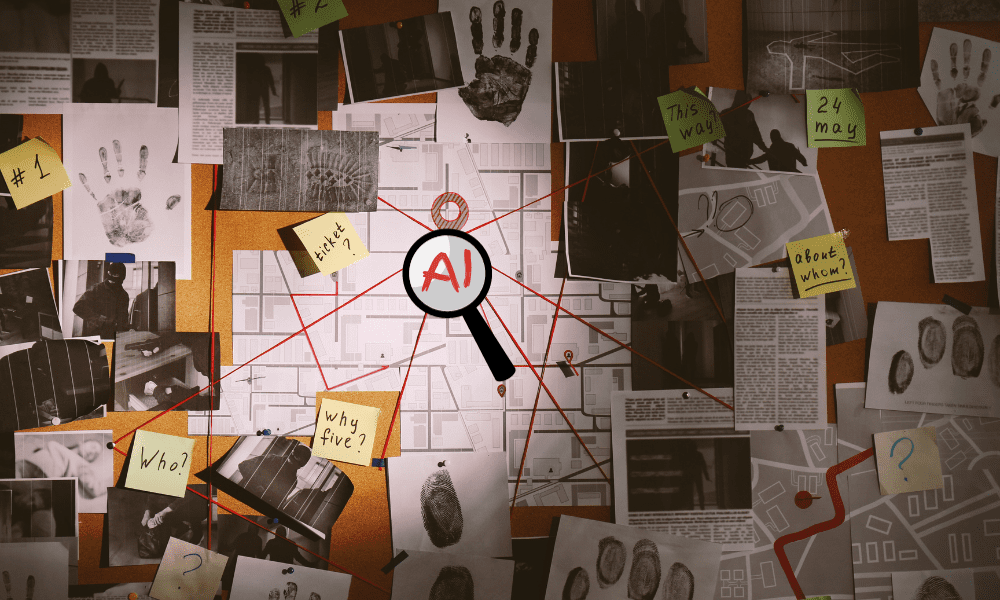AI And Learning: Separating Fact From Fiction For Ethical Application

Table of Contents
The Promises and Potential of AI in Learning
The integration of AI in education offers a wealth of opportunities to enhance the learning experience and improve educational outcomes. Let's explore some of the key benefits.
Personalized Learning Experiences
AI's ability to analyze vast amounts of data allows for the creation of truly personalized learning experiences. Adaptive learning platforms, powered by machine learning algorithms, can tailor learning paths to individual student needs and learning styles. These platforms adjust the difficulty and pace of instruction based on a student's performance, ensuring that each student is challenged appropriately. Intelligent tutoring systems provide personalized feedback and support, addressing individual knowledge gaps.
- Increased student engagement: Personalized learning keeps students motivated and invested in their education.
- Improved learning outcomes: Tailored instruction leads to better understanding and retention of information.
- Personalized feedback: Students receive targeted feedback that helps them improve their skills and address weaknesses.
Automating Administrative Tasks
One of the most significant benefits of AI in education is its potential to automate time-consuming administrative tasks for educators. AI-powered tools can automate grading, scheduling, and communication, freeing up valuable teacher time for more impactful activities like individualized instruction and student interaction. This includes tools that can automatically assess essays, multiple-choice tests, and even provide feedback on coding assignments.
- Increased teacher efficiency: Teachers can focus on teaching rather than administrative duties.
- Reduced workload: Automating tasks reduces teacher burnout and improves overall well-being.
- More time for individualized instruction: Teachers can dedicate more time to supporting individual student needs.
Enhanced Accessibility and Inclusivity
AI has the potential to make education significantly more accessible and inclusive for students with disabilities or from diverse backgrounds. AI-powered translation tools can break down language barriers, making educational resources available to a wider audience. Assistive technologies powered by AI can provide personalized support to students with learning differences, ensuring equitable access to education.
- Breaking down barriers to learning: AI can overcome obstacles faced by students with disabilities and from diverse backgrounds.
- Creating more equitable educational opportunities: AI can help level the playing field and provide equal access to quality education.
- Personalized support for diverse learners: AI can tailor support to meet the unique needs of each student.
Addressing the Ethical Concerns of AI in Education
While the potential benefits of AI in education are significant, it's crucial to address the ethical concerns that arise with its implementation.
Algorithmic Bias and Fairness
AI algorithms are trained on data, and if that data reflects existing societal biases, the algorithms will perpetuate those biases. This can lead to unfair or discriminatory outcomes for certain groups of students. Ensuring data diversity and algorithm transparency is crucial to mitigating bias and promoting fairness in AI-powered educational tools.
- Ensuring fair and equitable outcomes: Addressing bias is critical to ensuring that AI benefits all students equally.
- Mitigating bias in AI systems: Careful data selection, algorithm design, and ongoing monitoring are essential.
- Promoting algorithmic accountability: Transparency and explainability are crucial for understanding and addressing bias.
Data Privacy and Security
The use of AI in education involves the collection and processing of vast amounts of student data. Protecting student data privacy is paramount. Strict adherence to data privacy regulations, such as GDPR and FERPA, is essential. Secure data storage and transmission protocols must be implemented, and informed consent from students and parents is crucial.
- Compliance with data privacy regulations (GDPR, FERPA): Following legal requirements is non-negotiable.
- Secure data storage and transmission: Robust security measures are essential to protect student data.
- Informed consent from students and parents: Transparency and consent are vital for ethical data handling.
The Role of Human Educators
Even with the advancements in AI, the role of human educators remains irreplaceable. Human teachers bring emotional intelligence, critical thinking skills, and ethical reasoning to the classroom. Teacher training and professional development in AI literacy are essential to ensure that educators can effectively integrate AI tools into their teaching practices and address the ethical considerations involved.
- Human interaction and emotional intelligence: AI cannot replace the human connection crucial for learning.
- Teacher's role in critical thinking and ethical reasoning: Educators must guide students in navigating the ethical implications of AI.
- Ongoing professional development for educators: Teachers need support and training to effectively use AI tools.
Ethical Applications of AI and Learning – The Path Forward
Integrating AI in education offers transformative potential, but responsible innovation requires careful consideration of ethical implications. The benefits of personalized learning, automated tasks, and enhanced accessibility are significant, but algorithmic bias, data privacy concerns, and the irreplaceable role of human educators must be addressed proactively. Collaboration between educators, AI developers, and policymakers is essential to ensure that AI is used ethically and effectively to improve education for all. We must promote further research into ethical AI applications in education and engage in ongoing discussions to navigate the complexities of this rapidly evolving field. Let's work together to harness the power of AI for the betterment of education, ensuring equitable and ethical applications of this transformative technology. Embrace responsible innovation and explore the potential of ethical AI in learning.

Featured Posts
-
 Communique De Presse Sanofi Et L Inauguration De Son Nouveau Site En France
May 31, 2025
Communique De Presse Sanofi Et L Inauguration De Son Nouveau Site En France
May 31, 2025 -
 Rangers Shut Out Tigers In Opening Home Series Defeat
May 31, 2025
Rangers Shut Out Tigers In Opening Home Series Defeat
May 31, 2025 -
 Spring 2024 Unsettling Parallels To 1968 And The Implications For Summer Drought
May 31, 2025
Spring 2024 Unsettling Parallels To 1968 And The Implications For Summer Drought
May 31, 2025 -
 48 Events In Washington D C For May Pride Month Concerts And Exhibits
May 31, 2025
48 Events In Washington D C For May Pride Month Concerts And Exhibits
May 31, 2025 -
 The U S Economy Shrinks 0 2 A Deeper Look At Spending And Tariff Effects
May 31, 2025
The U S Economy Shrinks 0 2 A Deeper Look At Spending And Tariff Effects
May 31, 2025
